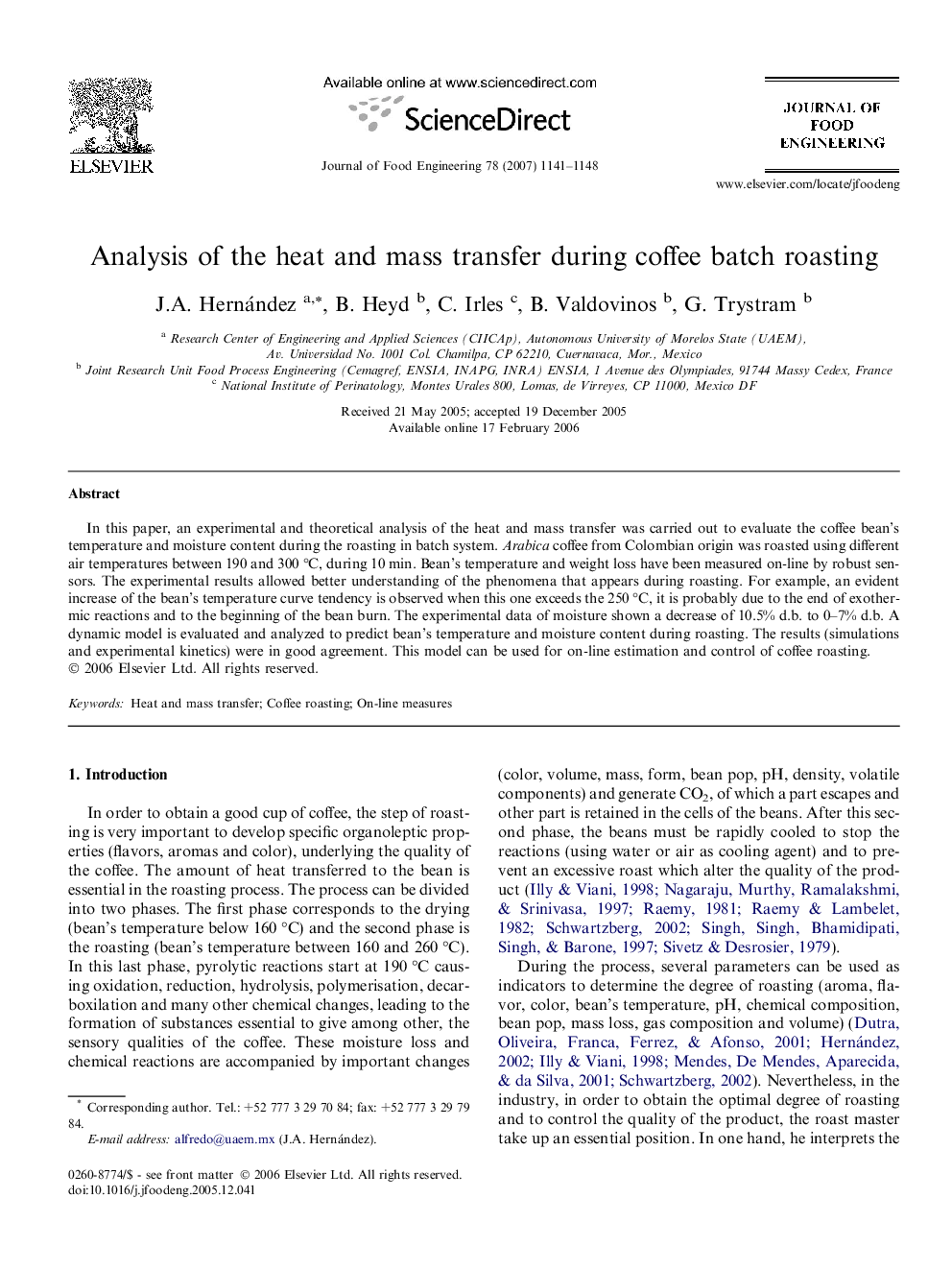| Article ID | Journal | Published Year | Pages | File Type |
|---|---|---|---|---|
| 226380 | Journal of Food Engineering | 2007 | 8 Pages |
In this paper, an experimental and theoretical analysis of the heat and mass transfer was carried out to evaluate the coffee bean’s temperature and moisture content during the roasting in batch system. Arabica coffee from Colombian origin was roasted using different air temperatures between 190 and 300 °C, during 10 min. Bean’s temperature and weight loss have been measured on-line by robust sensors. The experimental results allowed better understanding of the phenomena that appears during roasting. For example, an evident increase of the bean’s temperature curve tendency is observed when this one exceeds the 250 °C, it is probably due to the end of exothermic reactions and to the beginning of the bean burn. The experimental data of moisture shown a decrease of 10.5% d.b. to 0–7% d.b. A dynamic model is evaluated and analyzed to predict bean’s temperature and moisture content during roasting. The results (simulations and experimental kinetics) were in good agreement. This model can be used for on-line estimation and control of coffee roasting.
